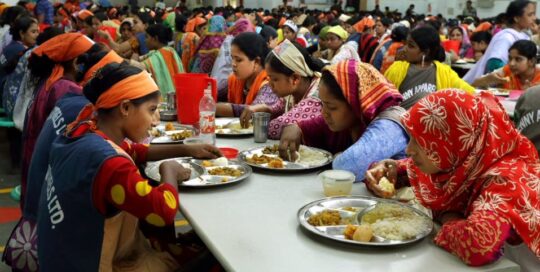ActionAid: Feasibility Study on Outcomes-Based Finance for Agroecology
ActionAid is an international women’s rights organization dedicated to achieving an equitable and sustainable world. They collaborate with women’s movements and local communities worldwide. ActionAid opposes inequality and poverty and advocates from a feminist perspective, prioritizing well-being over profit for a future they envision.
One of the ways ActionAid fosters this change is through their agroecology programmes. For years, ActionAid has been promoting agroecology as an alternative to destructive industrial agriculture. Agroecology strives for inclusive, sustainable agricultural and food systems grounded in ecological, economic, social, and feminist principles. The current agricultural and food system poses significant challenges, while agroecology offers solutions to address climate change, the inequality, hunger, and malnutrition experienced by the most vulnerable, and the disproportionate power of large corporations.
In the Global South, industrial agriculture has led to large-scale deforestation, water and land grabbing, and continues to undermine small-scale sustainable food production for local markets. Existing inequalities are further exacerbated by these crises: women are disproportionately affected by climate change, displacement of local food agriculture, and hunger.
Within agroecology, women are a crucial stakeholder and are placed at the center of the agricultural transformation: ActionAid actively seeks ways to reduce the workload of women in both unpaid care work and agricultural labor. They also proactively pursue social and economic benefits for women and girls. Therefore, agroecology is inherently feminist, aiming to empower women and promote gender equality across agricultural and food systems.
ActionAid’s Request
Although agroecology programmes are critically important, they are currently mostly implemented on a small scale, which limits the evidence of their potential for scaling up and making impact. ActionAid has asked Social Finance NL to explore ways in which outcome-based finance, such as through impact bonds, could provide a solution to the challenges their agroecology programmes are facing compared to traditional donor-centric approaches.
The SFNL Approach
Result
The results of the feasibility study for the selected agroecology program and implementing country office will be used to attract new partnerships and financiers. Additionally, this feasibility study will serve as a model for other agroecology programs within the ActionAid Federation.
| Project | ActionAid |
|---|---|
| Jaar | 2024 |
| Type | Advisory, Research |
| Partijen | Social Finance NL ActionAid Nederland ActionAid International |
| Locatie | Ethiopia |






